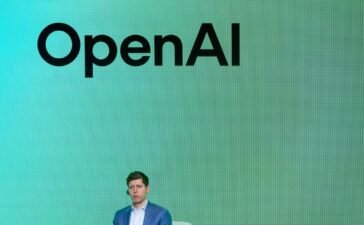Users on social media have discovered a controversial use case for Google’s new Gemini AI model: removing watermarks from images, including from images published by Getty Images and other well-known stock media outfits.
Last week, Google expanded access to its Gemini 2.0 Flash model’s image generation feature, which lets the model natively generate and edit image content. It’s a powerful capability, by all accounts. But it also appears to have few guardrails. Gemini 2.0 Flash will uncomplainingly create images depicting celebrities and copyrighted characters, and — as alluded to earlier — remove watermarks from existing photos.
New skill unlocked: Gemini 2 Flash model is really awesome at removing watermarks in images! pic.twitter.com/6QIk0FlfCv
— Deedy (@deedydas) March 15, 2025
As several X and Reddit users noted, Gemini 2.0 Flash won’t just remove watermarks, but attempt to fill in any gaps created by a watermark’s deletion. Other AI-powered tools do this, too, but Gemini 2.0 Flash seems to be exceptionally skilled at it — and free to use.
Gemini 2.0 Flash, available in Google’s AI studio, is amazing at editing images with simple text prompts.
It also can remove watermarks from images (and puts its own subtle watermark in instead 🤣) pic.twitter.com/ZnHTQJsT1Z
— Tanay Jaipuria (@tanayj) March 16, 2025
To be clear, Gemini 2.0 Flash’s image generation feature is labeled as “experimental” and “not for production use” at the moment, and is only available in Google’s developer-facing tools like AI Studio. The model also isn’t a perfect watermark remover. Gemini 2.0 Flash appears to struggle with certain semi-transparent watermarks and watermarks that canvas large portions of images.
Still, some copyright holders will surely take issue with Gemini 2.0 Flash’s lack of usage restrictions. Models including Anthropic’s Claude 3.7 Sonnet and OpenAI’s GPT-4o explicitly refuse to remove watermarks; Claude calls removing a watermark from an image “unethical and potentially illegal.”
Removing a watermark without the original owner’s consent is considered illegal under U.S. copyright law (according to law firms like this one) outside of rare exceptions.
Google didn’t immediately respond to a request for comment sent outside of normal business hours.
You Might Also Like
Chinese marketplace DHgate becomes a top US app as trade war intensifies
The Trump trade war has gone viral on TikTok, pushing a Chinese e-commerce app, DHgate, to the top of the...
Hertz says customers’ personal data and driver’s licenses stolen in data breach
Car rental giant Hertz has begun notifying its customers of a data breach that included their personal information and driver’s...
OpenAI plans to phase out GPT-4.5, its largest-ever AI model, from its API
OpenAI said on Monday that it would soon wind down the availability of GPT-4.5, its largest-ever AI model, via its...
Google’s newest AI model is designed to help study dolphin ‘speech’
Google’s AI research lab, Google DeepMind, says that it has created an AI model that can help decipher dolphin vocalizations,...










